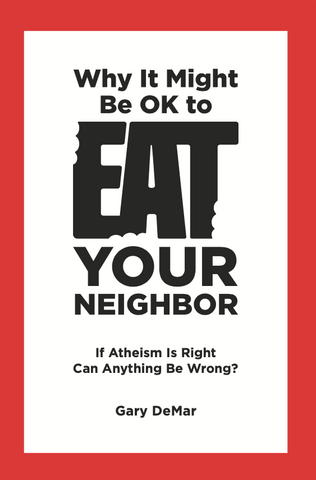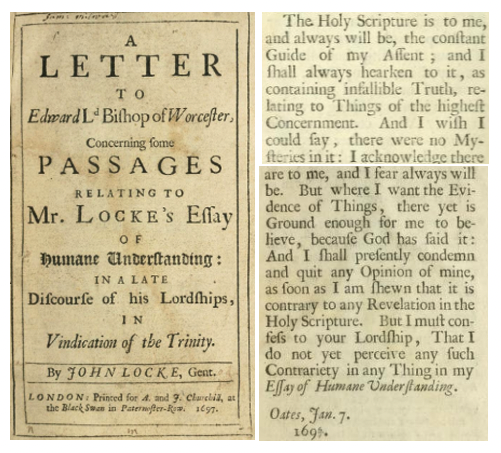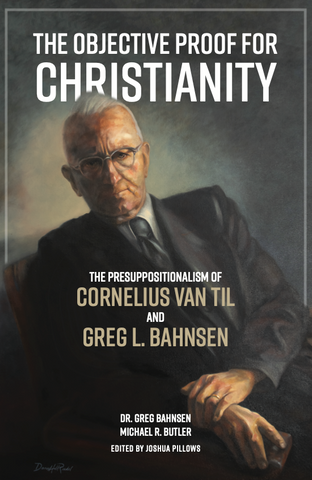To understand the relationship between Church and State we need to go to the source, and that source is not the United States Constitution. Modern-day social theory is based on an evolutionary model. This means that there is no way to account for morality, governmental jurisdictions, or separation of powers since these principles are found in the Bible. Some will argue that they can be accounted for using natural law. But Darwinism ended natural law as a basis for anything except change.
Charles Darwin destroyed natural law theory in biological science…. His successors destroyed natural law theory in social science. In the 1920’s, quantum physics destroyed natural law theory in the subatomic world. This immediately began to undermine modern legal theory.[1]
Does anyone remember how the Senate Judiciary Committee, particularly then-Senator and now President Joe Biden, attacked Clarence Thomas for believing that the Constitution had to be interpreted in the light of a higher law theory? While the Constitution states that it is the “law of the land,” there is very little actual law in the Constitution. For example, there are no prohibitions against murder, theft, or rape. So why are these actions morally wrong? The Constitution doesn’t say. The Constitution either implements whatever moral worldview is in vogue at the time or it rests on a fixed set of external moral precepts. Thomas believed that natural law was that external law. Some present Supreme Court justices understand the need for a law external to the Constitution. They’ve appealed to International Law for the Constitution’s external moral pou sto. This is like the belief of some prominent scientists that Earth had in long ages past had been “seeded with life.” The logical question to ask is, “Where did the alien seed originate?” In legal terms, what is the foundation of International Law that gives it moral validity? Aliens? Where did they get it? DNA? “DNA neither knows nor cares,” Richard Dawkins asserts. “We just dance to its music.”

Why It Might Be OK to Eat Your Neighbor
The most damning assessment of a matter-only cosmos devoid of a Creator is that we got to this place in our evolutionary history by acts of violence whereby the strong conquered the weak with no one to support or condemn them. Why It Might Be OK to Eat Your Neighbor repeatedly raises the issue of accounting for the conscience, good and evil, and loving our neighbor. It’s shocking to read what atheists say about a cosmos devoid of meaning and morality.
Buy NowThe framers believed that “the laws of nature and of nature’s God,” a phrase found in the Declaration of Independence, were almost universally accepted. This is why Clarence Thomas could write: “We look at the Natural Law beliefs of the founders as a background to our Constitution.”[2] When the left-leaning members of the committee heard this, they went on the attack. Thomas was saying that there are fixed moral laws written into the created order that even the Constitution and its interpreters are bound to follow. During the Thomas hearings when he was being considered as a Supreme Court Justice, Biden wrote an article that appeared in the Washington Post.[3] He claimed the following for his version of natural law:
• It does not “function as being a specific moral code regulating individual behavior.”
• It is not “a static set of unchanging principles.”
• It is “an evolving body of ideals.”
And that’s the problem with Natural Law. Who gets to define what’s natural? According to Biden, natural law is whatever the courts say it is or isn’t. A Supreme Court Justice doesn’t have to believe in fixed moral principles unless, of course, it means giving women the legal right to kill unborn babies or to redefine “gender.” If there were ever fixed natural laws, the right to abortion and gender fluidity would be first in line. Of course, abortion, homosexuality, and transgenderism are against even Darwinism.
“In our system,” Biden declared, “the sole obligation of a Supreme Court justice is to the Constitution. Natural justice can supply one of the important means of understanding the Constitution, but natural law can never be used to reach a decision contrary to a fair reading of the Constitution itself.” “We the people” is the operating standard of the Constitution. If politicians can get 51 percent of the people to agree that slavery is moral, then it’s moral. Pick any political or social atrocity.
To repeat, there is almost no law in the Constitution. This is why those on the Left (and a good number on the Right) want to be the judicial gatekeepers. Personal opinions are the basis of moral decision-making today, and those with the most power get to say what’s right or wrong. This is why there cannot be a higher law governing the Constitution and the decisions of judges. It’s no wonder Democrats want to pack the Supreme Court. Biden’s article did not tell us anything about how we determine what’s right or wrong, and that’s the way he wanted. His presidency is proof.
Natural Law was popular when revelational law was acknowledged. Consider the work of William Blackstone (1723-1780). When America’s founders called for change, they did it in terms of universally held principles that had as their source God’s law, both special and natural revelation, as Blackstone made clear:
This law of nature, being co-eval [functioning at the same time] [4] with mankind and dictated by God Himself, is of course superior in obligation to any other. It is binding over all the globe, in all countries, and at all times: no human laws are of any validity, if contrary to this; upon these two foundations, the law of nature and the law of revelation, depend all human laws; that is to say, no human laws should be suffered [permitted] to contradict these.[5]
John Locke’s works were instrumental in popularizing Natural Law theory among the colonists. Even so, Locke wrote, “The Holy Scripture is to me, and always will be, the constant guide of my Assent; and I will always hearken to it, as containing the infallible truth relating to things of highest concernment. And I wish I could say there were no mysteries in it; I acknowledge there are to me, and I fear there always will be. But where I want the evidence of things, there is yet ground enough for me to believe because God has said it; and I will presently condemn and quit any opinion of mine, as soon as I am shown that it is contrary to any revelation in Holy Scripture.”[6]

Locke scholar Jeremy Waldron concludes, “As a philosopher, Locke was intensely interested in Christian doctrine, and … he insisted that most men could not hope to understand the detailed requirements of the law of nature without the assistance and teachings of Jesus.”[7]
Without Special Revelation, Natural Law is a moral dead end. Some people understood the dilemma of how to account for moral absolutes in a society that officially discounts God. Yale law professor Arthur Leff was perplexed that an agnostic culture even wants enduring values. In a lecture delivered at Duke University in 1979, Leff expressed his bewilderment:
I want to believe—and so do you—in a complete, transcendent and immanent set of propositions about right and wrong, findable rules that authoritatively and unambiguously direct us how to live righteously. I also want to believe—and so do you—in no such thing, but rather that we are wholly free, not only to choose for ourselves what we ought to do, but to decide for ourselves, individual and as a species, what we ought to be. What we want, Heaven help us, is simultaneously to be perfectly ruled and perfectly free, that is, at the same time to discover the right and the good and to create it.[8]
How can a solution ever be found in a random, impersonal cosmos, “governed” (if the word can be used) by chance given Leff’s logic? “[W]ith God out of the picture,” Philip Johnson writes, “every human being becomes a ‘godlet’—with as much authority to set standards as any other godlet or combination of godlets.”[9] Any person who utters a moral injunction is most often met with, “Who says? Who are you to impose your morality on me?” Leff continues his logical analysis of the dilemma:
Putting it that way makes clear that if we are looking for an evaluation, we must actually be looking for an evaluator: some machine for the generation of judgments on states of affairs. If the evaluation is to be beyond question, then the evaluator and its evaluative processes must be similarly insulated. If it is to fulfil its role, the evaluator must be the unjudged judge, the unruled legislator, the premise maker who rests on no premises, the uncreated creator of values…. We are never going to get anywhere (assuming for the moment that there is somewhere to get) in ethical or legal theory unless we finally face the fact that, in the Psalmist’s words, there is no one like unto the Lord…. The so-called death of God turns out not to have been His funeral; it also seems to have effected the total elimination of any coherent, or even more-than-momentarily convincing, ethical or legal system dependent upon final authoritative, extrasystemic premises.[10]
What is the secularist’s answer? How did the modernist create a moral center in the Darwinian struggle for life? The usual answer is “by doing good” that benefits the species. Being kind, for example, has a good result. But is this always true? The claim is made “that a variety of widely accepted norms, including the keeping of certain promises, the abhorrence of unjustified killing of human beings, and perhaps even the sanctity of property rights, promote the adaptation of the human species to its environment. But so does genocide.”[11]
All the “great” tyrants claimed that what they did was for their version of what was the betterment of mankind. To Hitler, Jews were a world problem. Mass sterilization was first considered, then more efficient and quicker methods were proposed and carried out to rid the world of the “Jewish problem.” But in the end, it was all done for a “righteous” cause.[12]

The Objective Proof for Christianity
While the absence of Dr. Bahnsen, regarded as the “champion” of presuppositionalism, has resulted in a philosophical gap in the 21st Century, he has nevertheless left us with such needed material. This book aims to fill that gap by offering a rigorous defense of presuppositionalism from a philosophical and transcendental standpoint, transcribed directly from Dr. Bahnsen’s lectures.
Buy Now[1] Gary North, Political Polytheism (Tyler, TX: Institute for Christian Economics, 1989), xxii.
[2] “Thomas Spars With Committee over Natural Law and Abortion,” Congressional Quarterly Weekly Review, 49:38 (September 21, 1991), 2644.
[3] Joseph R. Biden, Jr., “Law and Natural Law: Questions for Judge Thomas,” The Washington Post (September 8, 1991), C-1.
[4] Medieval (middle time or Middle Ages) and primeval (belonging to the first or earliest age or ages), co-eval (at the same time).
[5] William Blackstone, Commentaries on the Laws of England, 4 vols. (Chicago: The University of Chicago Press, [1765–1769] 1979), 1:38, 41, 42).
[6] From a letter John Locke wrote to Bishop Edward of Worcester (1696-7): https://archive.org/details/lettertoedwardld00lockuoft/page/n3/mode/2up
[7] God, Locke, and Equality: Christian Foundations of John Locke’s Political Thought (New York: Cambridge University Press, 2002), 12.
[8] Arthur Leff, “Unspeakable Ethics, Unnatural Law,” Duke Law Journal (1979), 1229-1249. Phillip E. Johnson, “The Modernist Impasse in Law,” God and Culture: Essays in Honor of Carl F. H. Henry, D.A. Carson and John D. Woodbridge, eds. (Grand Rapids, MI: Eerdmans, 1993), 182.
[9] Johnson, “The Modernist Impasse in Law,” 182.
[10] Leff, “Unspeakable Ethics, Unnatural Law.” Quoted in Johnson, “The Modernist Impasse in Law,” 183.
[11] Richard Posner, The Problems of Jurisprudence (Boston: Harvard University Press, 1990), 235-236. Quoted in Johnson, “The Modernist Impasse in Law,” 184.
[12] For a chilling reenactment of the plan, see the HBO Film Conspiracy: The Meeting at Wannsee, starring Stanley Tucci, Colin Firth, and David Threlfall. The two-hour meeting on January 20, 1942, essentially sealed the fate of Jews in Europe. The approach taken by the thirty German bureaucrats was medicinal, a straightforward outline on how to solve the Jewish problem without ever using the words “kill” or “exterminate.” The law as it existed in Germany at the time was followed, giving them proper legal cover and justification for their actions. The date of the meeting nearly coincides with the Roe v. Wade decision of 1973 (January 22) which has had a more ominous effect. Safe to say that more than six million Jewish babies have been killed legally through abortion since 1973.

